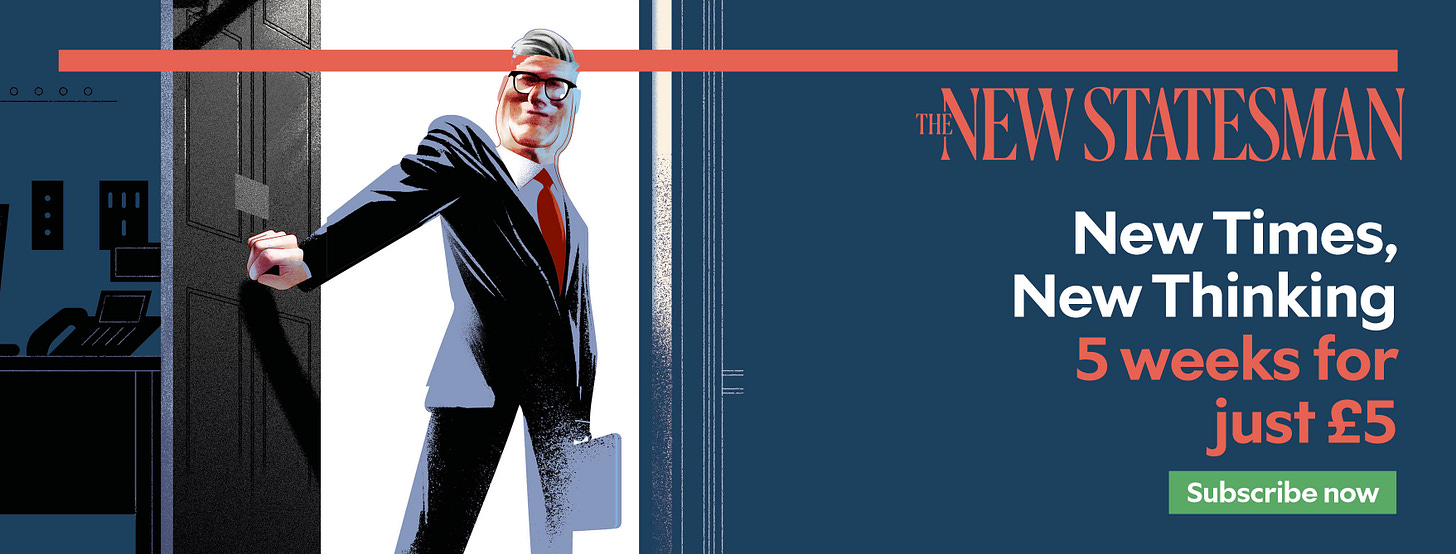Good morning, Will here. Rachel Reeves is reportedly considering changes to the rules around “non-doms” – people who declare themselves to be “non-domiciled” in the UK in order to pay less tax – in response to a protracted media campaign against the policy.
On a daily basis, newspapers from the Telegraph to the Independent are warning that the abolition of the non-dom regime is causing an exodus of millionaires. This week, estate agents have protested that the top end of the London property market is now in freefall. The mansions stand empty!
Questions to ask about these reports include: are they bullshit? And why should I care? Does it matter if the non-doms are leaving? New research suggests a surprising answer.
Firstly, these claims have at least a whiff of the farmyard in that they are being made by people who have a clear financial interest in the matter. If I was selling prime central London property, I would definitely use the media to push the narrative that the wildly overpriced houses I was pushing were in fact going for a song.
That’s not to say they’re lies, but they are claims made in the absence of the actual data on non-doms (which will be released by HMRC next month). Fortunately, there is other data that does tell us a verifiable story about what happens when you change the non-dom rules, because these rules have been changed before – by George Osborne, in 2017. The changes Osborne announced in his 2015 Budget amounted to a £1.5bn tax hike on non-doms. Last month, a study was published which shows what happened next.
Immediately after the 2015 Budget, the emigration rate of non-doms rose, peaking in 2018 – but by 2019, it was lower than it had been before the change was announced. So the policy was announced and an “exodus” appeared to follow, but it wasn’t an exodus. It was people bringing forward a change they had been planning to make anyway.
The second conclusion was even more important: the people who paid the least tax were the most likely to leave. The millionaires who left were the fiscally useless, the do-nothing rich.
A common misconception is that rich people are economically similar. But there are two very different species: people who earn loads of money and people who have loads of money. People who earn lots of money typically pay a lot of tax. A banker in London on £600,000 a year should pay about £245,000 in income tax and National Insurance (assuming maximum pension contributions), contributing as much to the state in three years as the average Brit contributes over their whole working life. This makes them very important from a fiscal point of view. But it also means they’re less likely to leave when there’s a tax change, because they have a great job that it would be hard to get elsewhere, and because they demonstrably already tolerate a high level of taxation. And after the 2015 Budget, this is what they did: they stayed.
The other species are different. They are simply parking their wealth here, paying little tax, and leaving when the rules change. Arun Advani, the economist who led this research, told me that under the non-dom regime, the UK had effectively been a tax haven for people who had money here but didn’t earn money here: “Everyone thinks, because they’re very wealthy, that means they must be paying a lot of tax,” he said, but the people who left after 2015 were recognisable as being “not very well connected” to the economy by income – “but that’s also why they weren’t paying very much tax. So the cost of losing them is much lower.”
It’s very possible that this is what’s happening now: we are losing people whose connection to the economy was fleeting and low in value.
The stateless rich will be missed in some parts of London. Showrooms for ugly, dangerous cars will fall quiet; gaudy clothes with someone else’s name written all over them will go unsold; bad Mayfair restaurants and galleries for gaudy, laughable art will have to reconsider their value propositions. But the rest of us might benefit, thanks to the property market.
Expensive London property drags the rest of the housing market upward, imposing trickle-down inflation on homeowners. It also eats into our housebuilding capacity. When I walked through London’s wealthiest constituency with its MP, Joe Powell, recently we had to raise our voices over the sound of drills: every other property was a building site, an investment being serviced. The UK currently spends around £3bn a month on repair and maintenance of existing housing, more than six times what it spends on building new public housing. If the non-doms leave, housing might become both more affordable, and easier to build, for people who want to live here for reasons beyond their tax bill.
It’s also worth noting that leaving the country – any country – is something the stateless rich do constantly. In a normal year, with no tax changes announced, around a quarter of non-doms who have arrived recently (within the last two years) will leave anyway, and even among long-stayers (up to 15 years) one in 25 will leave each year. Maybe shopping in Harrods and driving a Lamborghini leaves you feeling empty and bored, and forces you to roam the planet seeking a fulfilment money can never buy? Who cares. They’re off to Dubai. Before the government performs another U-turn, it should ask whether anyone will miss them.
From our partners
We can pretend that ticket price caps will solve the problems people face. Or we can build on a secure, regulated resale ecosystem. Restricting ticket resale empowers fraudsters, argues Nicola Harding, CEO of We Fight Fraud.
Will’s picks
Freddie Hayward on the White House factions that will decide Iran’s fate.
Alison Phillips on Mrs Brown’s diversity agenda.
And Yo Zushi reviews film critic Ryan Gilbey’s book by delving into the rich history of queer cinema.
And with that…
I hope you enjoyed today’s newsletter. George will be back on Monday. Have a good weekend,
—Will









The arguments against changing non-Dom taxation lack any moral dimension. It is simply unfair that these people are paying a lower rate of tax than people of equal wealth and/or income who are domiciled here.
I also find it obtuse that at a time when the right talks about ‘native British’ being crowded out by non-white Brits, they are defending the rights of people to swan over here and pay less tax just because they are rich.
The presence of non-Doms who are only here because of tax arrangements is corrosive to our society and social cohesion. If they have so little attachment to the country that they will leave rather than pay their fair share of tax, good riddance. I’ll happily drive them to the airport.
Personally I will not miss them, but the Treasury is starting to worry I suspect. Many of them pay a lot of tax if you count in the VAT on those overpriced Mayfair restaurants etc. Yes I regret the fact that finding a flat in Mayfair or Belgravia, easy when I first moved to London in 1965, is now no longer an option for most young people, but it is a small price to pay for the non-dom taxes paying for many of the social services. If we follow your advice I fear there will be many more announcements of PIP payments having to be cut, which doesn't seem to have been very popular.